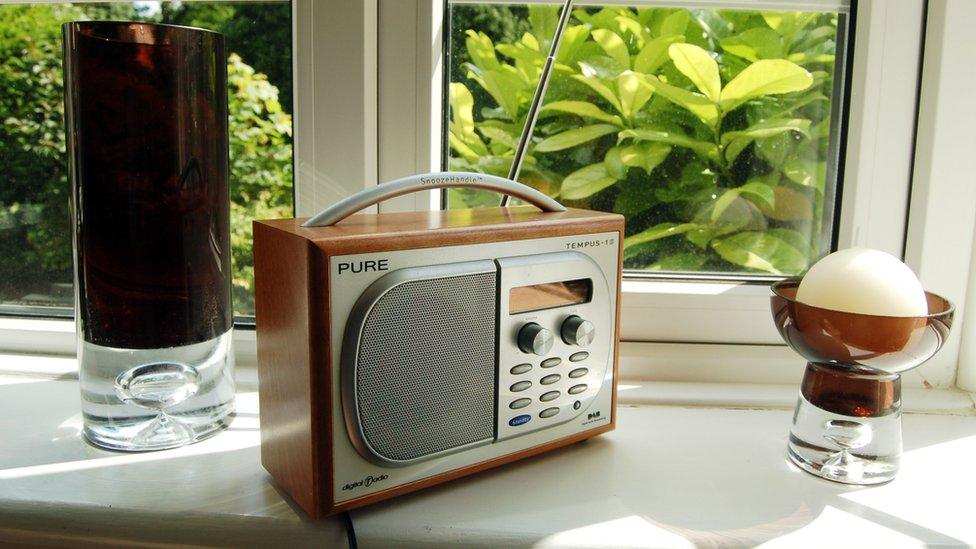Digital radio is at 'tipping point' to overtake analogue
- Published

Digital radio listening now accounts for 41.9% of audiences
Digital radio listening is reaching a "tipping point" to overtake analogue audiences, according to the body in charge of digital radio switchover.
Analogue listening declined year-on-year by 10.4%, accounting for 50.4% of overall listening, Rajar figures show.
"We are now counting down to the moment when the majority of all radio listening will be to digital," Digital Radio UK chief, Ford Ennals, said.
Some 30 million people (aged 15+) now tune into digital radio each week.
"The 12.5% annual growth in digital listening hours to nearly 42% share is the strongest we have seen for two years," Ennals said.
"The shift to digital listening is accelerating across the UK and the fact listening on analogue platforms has declined to just over 50% of people is a tipping point."
A further 7.7% of radio listening was listed as "unspecified" by respondents to the Rajar survey.
Chris Evans's breakfast show on Radio 2 is the most popular in the time slot in the UK
The rise in digital listening was reflected in record figures for “óĻó“«Ć½ digital-only radio stations between July and September.
“óĻó“«Ć½ Radio 4 Extra attracted an average 2.20 million listeners per week - a rise of 35% on the same period last year - to become the largest digital-only channel in the UK.
“óĻó“«Ć½ Radio 5 live sports extra saw its audience jump 42% to 1.73 million listeners, with 2.19 million listeners tuning into “óĻó“«Ć½ 6 Music.
Overall, “óĻó“«Ć½ Radio 2 had the biggest weekly reach for any UK radio station with 15.4 million listeners - a new record for the period.
The Heart network had the highest audience for a commercial UK station with 9.1 million weekly listeners.
Chris Evans's Radio 2 breakfast show continued its success as the most popular morning programme with 9.4 million listening each week.
In London, Kiss was number one commercial radio station in London with 2.1 million weekly listeners. It overtook rival Capital by 3,000 listeners, which lost 5.2% of its audience over the quarter.
Despite Capital's breakfast show suffering a 14% drop of listeners from 1.15m to 980k, it is still the most popular show in London.
- Published29 October 2015
- Published6 August 2015
- Published21 May 2015